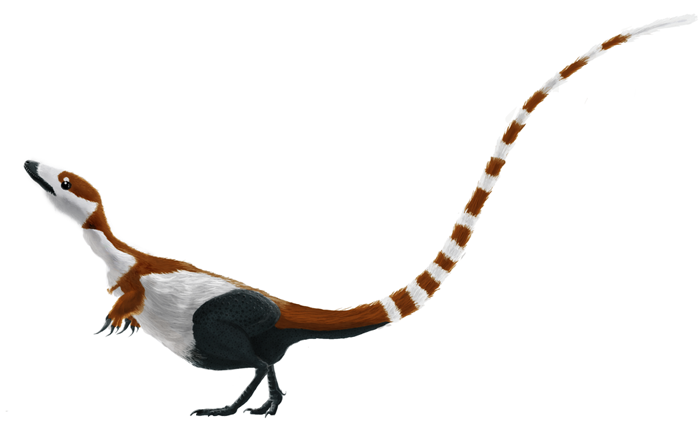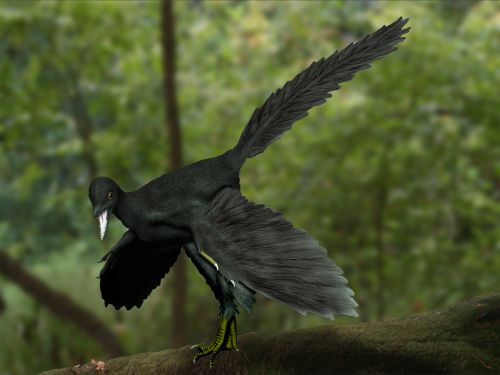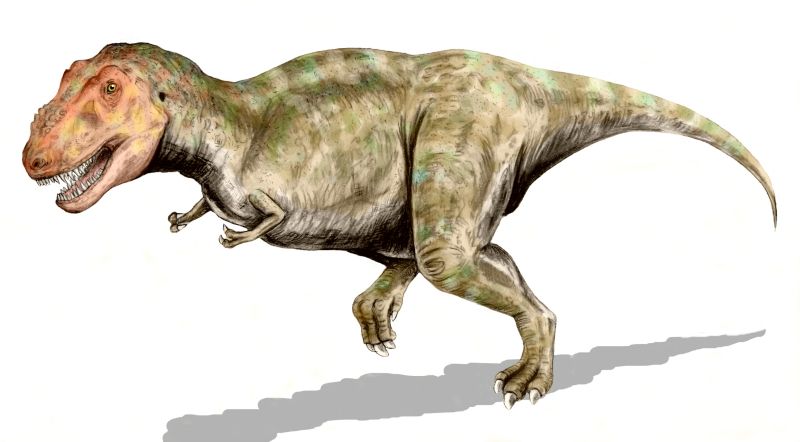I tell ya, just when I was starting to get really
excited about Jurassic Park IV's release, something happens. As you'll
recall, this movie was supposed to come out on June 13, 2014. And over the past
few months, they've been slipping a little bit of information on this movie
out. But something terrible happened recently to this movie – the release date
has been . . . postponed! Why you ask? Well, for a few days, JP
fans have been wondering why in the world they would postpone this movie. Then
we finally got our answer. Here is what Universal Studios has to say about the
film:
"Universal has decided to release Jurassic Park 4 at a later date giving the studio and filmmakers adequate time to bring audiences the best possible version of the fourth instalment in Universal's beloved franchise.
"We could not be more excited about the vision that Colin Trevorrow has created for this film, and we look forward to watching as he and the producers create another great chapter in this franchise's storied history."
So, it appears that the movie's release date has been
postponed because after the original final script was completed and the
“release date” was given, the director of this movie, Colin Trevorrow and some
of the film's screenwriters have done some “minor” changes to the script and
they gave this new script to Universal on May 6th. They
apparently have made the film more epic then they had originally imagined and
this makes it impossible to release the movie by June 13, 2014. So, so much for
Jurassic Park IV coming out next year! BUT, on the bright side,
at least it's not canceled! And I also have learned some other news regarding
this movie: they've started asking actors to be in the movie! The two
possibilities for a couple of leading roles are Bryce Dallas Howard and David Oyelowo. We'll see
if they accept the offer to be in one of the greatest franchises ever!
Now we know Jurassic Park IV's original release date
has been postponed, but fortunately there are other movies I will look forward
to seeing in the upcoming future. As you know from reading my last couple of
posts, I am looking forward to three upcoming movies from Pixar:
Monsters University, June 21, 2013
The Good Dinosaur, May 30, 2014
Finding Dory, November 25, 2015
And if that's not good enough, I will also be looking forward
to a film that's due to come out later this year and it's being produced by the
BBC. I am a fan of the Walking with . . . series (this series includes
series such as Walking with Dinosaurs, Walking with Beasts, Walking
with Monsters, Chased by Dinosaurs and etc.). So when I found out
they were making a new film, I found it easy to get excited! This new film is
called Walking with Dinosaurs 3D and it's due to come out December 13,
2013. Unlike Jurassic Park IV, it's already (for the most part at least)
finished, it's just waiting to be released. Here is a teaser trailer for this
film:
For those of you who are looking forward to my upcoming stop-motion series: Planet of the Dinosaurs, you'll be glad to know that I am roughly 75% finished with the first episode, “Out of Africa”. So I should be completely finished with it and ready to reveal it by the end of this month.
Dinosaurs are some of the most awe-inspiring creatures ever to walk the earth. You've probably seen hundreds of them in books, television, toy shops, museums and theme parks. You might think you know what they look like. But did you know that just about every dinosaur you've ever seen is a work of fiction? I mean, we don't even know what color these animals were. For years, the trail was cold. Why? Well because first of all, while we have a lot of dinosaur fossils – stone copies of long dead bones – dinosaur fossilized skin isn't that common. And when it's found, the coloration is gone. So scientists have had to guess.
So what factors would possibly determine what color dinosaurs
were? Knowing what habitat they lived in definitely helps. Maybe a dinosaur
living in a forest would have spots for camouflage or a predatory dinosaur
might have stripes like a tiger to conceal itself from its prey until the
attack. But that's all scientists used to be able to do – guess! They had no
sure way of knowing what color the dinosaurs were. Scientists were sure that
the color of the dinosaurs would never be revealed. I mean, it can't right,
considering the coloration of the skin is gone . . . right? Not anymore!
In 2010, a paleontologist named Fucheng Zhang and his colleagues completed their studies of a little dinosaur called Sinornithosaurus.
What they discovered would totally change the way we view these animals.
Pigment in hair, fur and feathers comes from microscopic cells called
melanosomes. What color you are depends on the shape of the melanosomes in the
skin/feathers/fur. Zhang believed that if these structures appeared in the
cells of the extinct animals when they
were alive, they should also appear in the fossils. He was correct! By
comparing the melanosomes in Sinosauropteryx with living animals, he was
able to determine the color of this dinosaur when it was alive! For the first
time in thousands of years, dinosaurs can be depicted in their real colors, so
what color was Sinosauropteryx? Well, based on this study Sinosauropteryx
is believed to have been reddish-brown with ginger-colored bands on its
tail.
 |
| Sinosauropteryx - by comparing the melanosomes genes found in the fossils of this dinosaur with modern animals, scientists were able to learn the true color of this animal. |
Sinornithosaurus is probably a member of the
dromaeosaur family (this group contains animals such as Deinonychus and
the ever-popular Velociraptor). This dinosaur's coloration was revealed
at the same time as Sinosauropteryx's was, and the study revealed that Sinornithosaurus
was probably a mixture of browns, yellows, reds and blacks – perfect coloration
for a life hunting in the ancient, pre-flood forests of China. This dinosaur
has another deadly secret – a recent study not only suggests this was a
colorful and dangerous predator, but also a venomous one at that! Stay
clear of this dinosaur!
 |
| The skeleton of Sinornithosaurus |
At about the size of a raven, the bird known as Archaeopteryx,
is perhaps one of the most famous of the extinct birds (next to the Dodo bird).
After looking at the microscopic melanosomes in 2011, graduate student Ryan
Carney and his colleagues discovered it was mostly black. While the study
doesn't prove that it was 100% black, it still makes the older paintings of Archaeopteryx
as a colorful creature obsolete.
 |
| Archaeopteryx - this bird was created on Day 5 of the Creation week 6,000 years ago with stunning black feathers. Black feathers suggests this bird was diurnal. |
 |
| This painting of an Archaeopteryx is inaccurate because this bird is now known to have been at least partially/mostly black. |
Up until 2013, extinct animal coloration studies were done on
small animals that had either feathers, in the case of Microraptor, Anchiornis
and Archaeopteryx, or collagen fibers (not feathers), in the case of Sinosauropteryx
and Sinornithosaurus. But scientists finally found out that they might
be able to know about the coloration of other, larger, more familiar dinosaurs.
Recently, a piece of Cretaceous fossilized hadrosaur (duck-billed dinosaur)
skin was found in Alberta, Canada. This find is amazing only because it's rare,
but also because it's three-dimensional – many other “skin” specimens are just
skin imprints. Many scientists are hoping that those little melanosomes are
still in this piece of skin so they will be able to tell what color this
dinosaur might have been. Physicist Mauricio Barbie is quoted for saying, “As
we excavated the fossil, I thought that we were looking at a skin impression.
Then I noticed a piece came off and I realized this is not ordinary-this is
real skin.”
As I said earlier, learning the color pigments of prehistoric
birds and dinosaurs is nothing new, but this is the very first time it will be
done with actual dinosaur skin (remember, the study on Sinornithosaurus and
Sinosauropteryx . . .). This hadrosaur is not the only dinosaur being
tested for melanosomes however, a Tyrannosaurus rex nicknamed “Scotty”
is also being a analyzed. Wouldn't it be great to know the real color of the
most famous dinosaur of all time?
Evolutionists are always puzzled when new discoveries are
made dealing with fossils that have been so inquisitively preserved, from the
intricate feathers of a Microraptor to the 3D piece of hadrosaur skin,
because they would have needed to have been buried very quickly to be preserved
so well. These scientists date these animals based on which fossil layers
they've been found in and are often dated to being millions of years old;
within biblical, Flood-model geology however, “many of the fossil-containing
rock layers can be best understood to reflect the order of burial during the
global Flood, which”* that occurred less than 4,500 (probably closer to 4,350)
years ago. So the supposed date assigned to the fossils we mentioned today
(e.g. the hadrosaur skin specimen is dated around 70 million years old in the
secular worldview) are mere flights of fantasy.
 |
| A possible coloration for Tyrannosaurus rex |
Wow! Who knew fossils could give us so much information about
these extinct animals, now we have even begun to unravel their colors! What
color do YOU think Tyrannosaurus and hadrosaurs were? Please voice your opinion
by either taking part in my poll at the right side of the page (the poll closes
on the15th) or post a comment using the instructions given in the “PS's” at the
bottom of this post. Please come back next week where we can learn more about
the wonderful world God has created for us to live in. Bye for now!
PS: To post a comment (this is highly encouraged), please
simply click the post you wish to comment on, scroll to the bottom of the page
and put what you wish to say or ask in the comment box. Then in the box below
the comment box choose who you’re going to comment as. And then click preview or publish. If you aren’t signed into Google, you’ll be asked to type
in a word and a number in the space provided. Type the word, put a space and
then put the number. Then your comment is on the blog!
PS 2: Have a puzzling question about animals (including
dinosaurs), myself, my latest book, my stop-motion movies, Creation or etc?
Please post your question as a comment or send me an email at animaladventures@aol.com.
PS 3: What’s the latest scoop? Check it out at SMILEY’S NEWS.
PS 4: Be sure to comment on the latest stop-motion movies
too, this will help me improve them.




No comments:
Post a Comment